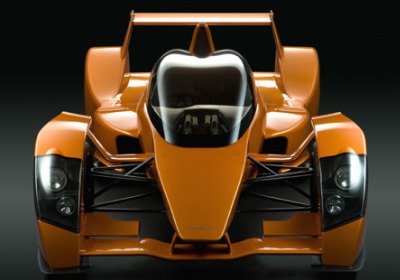Caparo T1 (2007) in detail
Fri, 08 Jun 2007By Phil McNamara
First Official Pictures
08 June 2007 03:21
What's the latest news?
The Caparo T1 is launched today, and it's the most extreme supercar ever built, claim its creators. Out of the way Le Mans racer or superbike – the British designed T1 is mightier than both. Thanks to its featherlight structure and 575bhp V8 engine, the Caparo can crack 60mph in less than 2.5sec, and demolish the 100mph barrier in under 5.0sec. It piles on speed at such a phenomenal pace thanks to a staggering power-to-weight ratio of 1045bhp per tonne. That's twice as powerful as the world's fastest production car, the 252mph Bugatti Veyron, which musters 'just' 506bhp per tonne. The T1 is the first series production car to break the 1000bhp per tonne ceiling, a feat beyond even the most vicious superbike, say the Caparo team. Two prototypes are lapping the Goodwood Motor Circuit right now, as the new British hero is showcased to the press. Naturally CAR Online is there, and first to bring you all the details.
The T1 supercar is a showcase for automotive consultancy Caparo Vehicle Technologies. This British-based multinational designs, manufactures and supplies components to the automotive industry. Its dream is to get more parts from lightweight metals or composites into mass production, to bring down the weight of family cars. Just don't expect the average family hatch to be as exotic – and therefore as expensive – as the T1. The limited edition supercar will cost £190,000 plus taxes. For that price, you get a car that weighs a featherlight 550kg. That's around one-third of the weight of a family saloon, and an impressive 250kg less than a Lotus Elise. The T1's principal designer is Ben Scott-Geddes, who cut his teeth at McLaren cars working on the Mercedes SLR. Like the McMerc, the T1 is made of advanced materials carbonfibre and aluminium. The monocoque is made from carbonfibre, like an F1 car which it closely resembles.
By Phil McNamara



